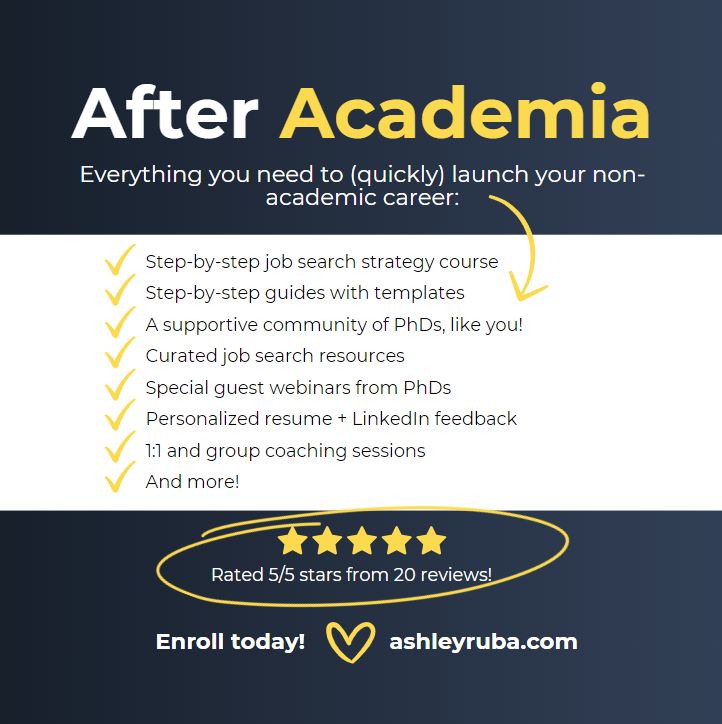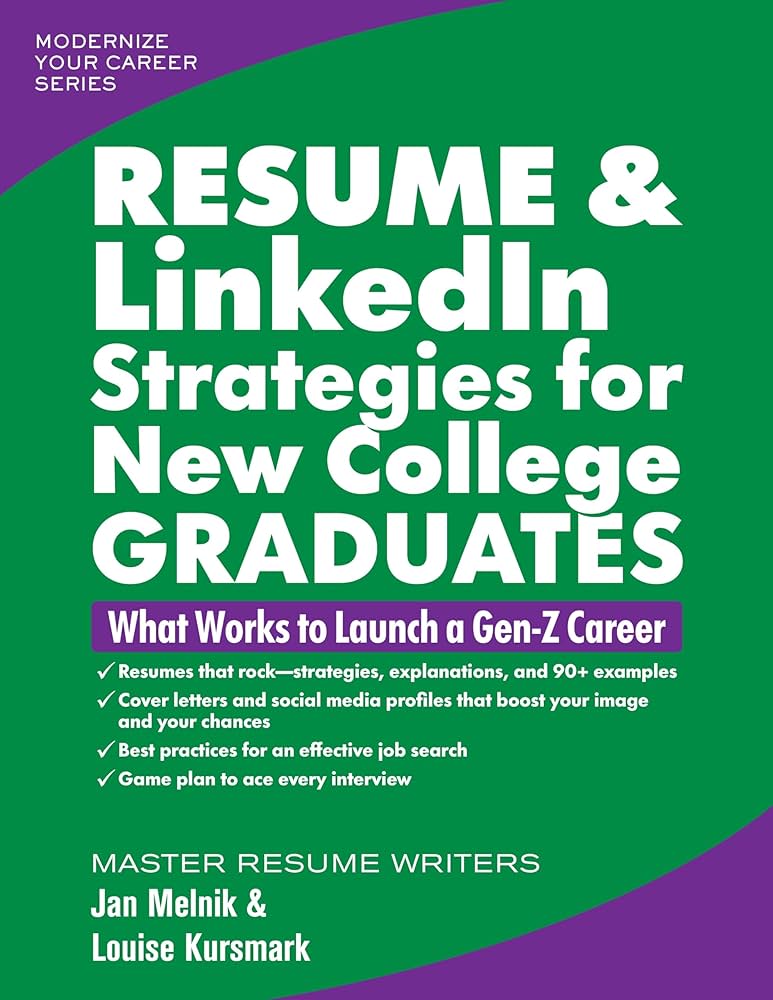Higher education jobs encompass a range of positions within universities and colleges. These roles include teaching, research, administration, and support services.
Seeking a career in the world of academia offers individuals the opportunity to delve into advanced subject matter, shape the minds of future generations, and contribute to ongoing scholarly dialogue. Whether you’re aiming for a role as a professor, academic advisor, registrar, or campus facility manager, each position plays a crucial part in the educational ecosystem.
The educational requirements and experience necessary for higher education careers vary, with most instructional or research positions demanding advanced degrees and a strong record of scholarship or professional practice. Candidates often find that networking within academic circles and maintaining a robust record of publications or relevant professional activities can enhance their prospects. Engaging in higher education as a career allows professionals to remain at the frontier of research and innovation while fostering a learning environment that encourages student growth and achievement. [Higher Education Jobs.]

Credit: www.linkedin.com
The Landscape Of Higher Education Employment
The realm of higher education jobs is as dynamic and diverse as the academic fields it encompasses. Over the past few years, we’ve seen a seismic shift in this landscape. This evolution presents an array of opportunities for professionals. It ranges from traditional faculty roles to innovative administrative positions. Understanding the current state and forthcoming trends is crucial for anyone looking to forge a career in academia. [Higher Education Jobs.]
Growth Of Academic Careers
Academic careers have seen promising growth. The demand for lecturers, researchers, and professors is on the rise. This fact is supported by the increasing number of students enrolling in universities globally. With this surge, institutions are expanding their faculties. They are also diversifying their course offerings. This growth paves the way for job seekers with varied expertise to find a niche in academia.
Trends Shaping The Job Market
Several trends are shaping the job market in higher education. Here are the key factors influencing employment prospects:
- Technological advancements: Digital skills are a must.
- Interdisciplinary studies: Institutions favor versatile knowledge.
- Global collaboration: International experience is revered.
- Industry partnerships: Practical skills are more important than ever.
These trends play a vital role in determining the scope and nature of jobs in higher education. Candidates must stay informed and adapt to leverage these opportunities.

Credit: www.linkedin.com [Higher Education Jobs.]
Assessing Your Fit For Academic Roles
Higher education jobs open doors to unique academic careers. If you dream of shaping minds or advancing knowledge, stay with us. Assessing your fit for academic roles starts. Consider key factors to find your place in the academic landscape.
Matching Skills With Roles
Quality academia rests on skill alignment. Begin with a self-audit. Skills like critical thinking, communication, and leadership are core. Then, look at specific academic job descriptions. Does your skill set intertwine with these roles? Use these steps:
- Identify your strongest abilities.
- Compare with several academic positions.
- Note overlapping skills.
- Take stock of areas to improve.
Matching skills to roles helps pinpoint your best career path. For example, strong leadership might signal a fit for department head roles. Great communication could point to lecture positions.
Evaluating Your Passion For Teaching And Research
Passion kindles the flames of successful academic careers. Do you revel in teaching? Does research drive you? Reflect honestly: [Higher Education Jobs.]
| Teaching | Research |
|---|---|
|
|
True passion shines through teaching and research efforts. Job satisfaction aligns with your desire to teach, mentor, and discover. Choose roles where these passions play a pivotal part.
Creating A Standout Academic Cv
Embarking on the journey to secure a role in academia demands a remarkable Academic CV. It’s your professional storybook, cataloging your academic background and career achievements. Your CV allows you to shine in the competitive realm of higher education jobs. Crafting a CV that stands out is crucial for capturing the attention of hiring committees and advancing your academic career.
Key Components Of An Academic Cv
A winning Academic CV embraces several critical sections. Each part reveals a layer of your professional persona. Let’s outline these components: [Higher Education Jobs.]
- Contact Information: This includes your name, phone number, and email.
- Education: List your degrees in descending order, including awards or honors.
- Teaching Experience: Display your roles and contributions in educational settings.
- Research Experience: Detail your research projects, lab work, and publications.
- Publications: A chronological catalog of your work, stating the impact factor if applicable.
- Presentations: Highlight keynote speeches and conferences you’ve participated in.
- Professional Affiliations: Mention memberships in academic societies or organizations.
- Grants and Awards: Any financial backing or awards received for scholarly work.
- References: Opt for academic and professional individuals who can vouch for you.
Tailoring Your CV for Different Positions
Personalizing your CV demonstrates attentiveness to the specific role and institution. Follow these tips: [Higher Education Jobs.]
- Analyze the job description and echo keywords in your CV.
- Adjust teaching sections to underscore the most relevant experience.
- Stress research areas align with the department’s focus.
- Prioritize publications that resonate with the role’s requirements.
Remember, your Academic CV is a dynamic document. Regular updates keep it pertinent to diverse higher education opportunities.

Credit: www.amazon.com
Building A Professional Academic Network
Fostering a robust academic network is vital in higher education jobs. Strong connections open doors to new opportunities, collaborations, and knowledge sharing. Whether you are a seasoned researcher, an administrator, or an educator, building a professional network can propel your career to new heights.
Fostering a robust academic network is vital in higher education jobs. Strong connections open doors to new opportunities, collaborations, and knowledge sharing. Whether you are a seasoned researcher, an administrator, or an educator, building a professional network can propel your career to new heights.
Leveraging Conferences And Workshops
Academic conferences and workshops are goldmines for networking. They bring like-minded professionals together under one roof. Here’s how to make the most of these events:
- Plan your schedule, targeting sessions relevant to your field.
- Engage with speakers and attendees during Q&A sessions.
- Exchange business cards or contact information after discussions.
- Join post-conference social events to form deeper connections.
Remember, follow-up emails are key to maintaining these new relationships.
Making The Most Of Online Platforms
Online platforms are dynamic tools for building academic networks. Platforms such as LinkedIn, ResearchGate, and Academia.edu allow you to connect with peers globally. Here’s how to effectively use them: [Higher Education Jobs.]
| Platform | Action Steps |
|---|---|
|
|
| ResearchGate |
|
| Academia.edu |
|
Regular engagement and sharing of content on these platforms magnify your professional presence.
Leveraging Conferences And Workshops
Academic conferences and workshops are goldmines for networking. They bring like-minded professionals together under one roof. Here’s how to make the most of these events:
- Plan your schedule, targeting sessions relevant to your field.
- Engage with speakers and attendees during Q&A sessions.
- Exchange business cards or contact information after discussions.
- Join post-conference social events to form deeper connections.
Remember, follow-up emails are key to maintaining these new relationships.
Making The Most Of Online Platforms
Online platforms are dynamic tools for building academic networks. Platforms such as LinkedIn, ResearchGate, and Academia.edu allow you to connect with peers globally. Here’s how to effectively use them: [Higher Education Jobs.]
| Platform | Action Steps |
|---|---|
|
|
| ResearchGate |
|
| Academia.edu |
|
Regular engagement and sharing of content on these platforms magnify your professional presence.
Mastering The Higher Education Job Interview
Stepping into a higher education job interview can be thrilling. It is where your academic journey meets opportunity. Mastering the higher education job interview opens doorways to a fulfilling career in academia. Success involves two key areas: preparing for common questions and demonstrating your teaching philosophy effectively.
Preparing For Common Questions
Every interview poses questions to uncover your fit for the role. High-quality preparation sets you apart. Common questions include: [Higher Education Jobs.]
- Why are you interested in this position?
- What are your research interests and how do they align with our department?
- Can you describe your teaching experience?
Build a table of these questions. Match them with concise, impactful answers. This strategy can streamline your thoughts before the interview. Here’s an example:
| Common Question | Your Prepared Answer |
|---|---|
| Why this institution? | Highlight the institution’s values and how they resonate with you. |
| Your research focus? | Summarize your research and its relevance to the department. |
| Teaching experiences? | Discuss your approach and successes in teaching so far. |
Demonstrating Your Teaching Philosophy
Expressing your teaching philosophy is crucial. Outline your beliefs on education and learning. Explain how these beliefs shape your teaching methods. Be ready to share real examples from your career: [Higher Education Jobs.]
- Discuss a successful classroom initiative you’ve implemented.
- Explain how you handle diverse learning styles.
- Describe how you would contribute to the department’s curriculum.
Consider creating a visual representation, like an infographic, of your philosophy. Bring this to the interview to showcase your creativity and commitment.
Incorporating Research And Publications
In the realm of higher education jobs, integrating research and publications into your career can be a transformative experience. With today’s academic landscape highly competitive, showcasing your scholarly contributions is essential. This advancement not only enhances personal growth but also propels the academic community forward. [Higher Education Jobs.]
Strategies For Productive Research
Productive research forms the backbone of academic contribution. To excel, one must establish:
- Clear objectives: Define your research goals with precision.
- Timelines: Set realistic deadlines for your projects.
- Consistent routines: Develop a daily habit of research-related tasks.
- Collaboration networks: Partner with peers for diverse insights.
Implement tools and software to track progress and manage references efficiently. Remaining organized and applying these strategies consistently can lead to successful research outcomes.
Navigating The World Of Academic Publishing
Understanding the nuances of academic publishing is crucial for researchers:
- Select a suitable journal that aligns with your study.
- Follow submission guidelines meticulously.
- Respond to peer reviews constructively.
- Embrace open access for wider reach, if possible.
Success in publishing demands persistence, attention to detail, and a deep understanding of the publication process. By navigating these waters skillfully, academics can amplify their voice in the scholarly community. [Higher Education Jobs.]
Expanding Expertise Through Continued Learning
Expanding Expertise Through Continued Learning is crucial in higher education jobs. It allows educators and professionals to stay ahead in their fields. This process involves consistently growing and evolving one’s set of skills. Doing so enhances personal development and ensures their institutions remain competitive and effective.
Engaging In Professional Development
Professional development is key for anyone in the realm of higher education. It means learning new teaching methods, research techniques, and administrative processes. Opportunities include:
- Workshops to introduce current educational trends
- Conferences that connect peers and share insights
- Online courses to master new technologies or methodologies
These activities help educators and administrators to sharpen their minds. They also add innovative teaching practices. Each experience enriches their expertise. Regular engagement in such activities is a smart career move. [Higher Education Jobs.]
Exploring Interdisciplinary Opportunities
Working across different subjects opens new doors. It blends various skills and knowledge areas.
| Opportunity | Benefits |
|---|---|
| Research Collaborations | Build partnerships and widen your research scope |
| Cross-Departmental Teaching | Engage students with varied perspectives |
| Joint Grant Applications | Pool resources for a more substantial impact |
These interdisciplinary efforts lead to personal growth. They also culminate in more holistic educational experiences for students. They learn to connect the dots across subjects. They become critical thinkers and problem solvers. [Higher Education Jobs.]
The Role Of Mentorship In Academic Careers
Embarking on an academic career can be both exciting and challenging. Guidance is key to navigating this landscape successfully. This is where mentorship shines. A mentor provides wisdom, knowledge, and support. Think of them as a guiding star in the complex world of academia.
Finding The Right Mentor
Finding a mentor is a crucial step for success in higher education jobs. The right mentor opens doors and illuminates paths. Here’s how to find your ideal guide:
- Define your goals: Knowing what you want helps find a mentor aligned with your aspirations.
- Research: Look into potential mentors’ backgrounds. Ensure their experience resonates with your career path.
- Network: Attend academic conferences and seminars. Networking can lead to mentorship opportunities.
- Ask: Don’t hesitate to reach out to someone you admire. Be clear about why you’re seeking mentorship.
Benefits Of Being Mentored
Being mentored comes with a wealth of advantages:
| Benefit | Description |
|---|---|
| Expert Insights | Mentors provide personalized advice that textbooks cannot offer. |
| Networking Opportunities | Mentors often introduce mentees to valuable contacts. |
| Emotional Support | They understand the journey and offer support during challenges. |
| Feedback | Constructive criticism from mentors fosters growth and development. |
| Success Strategies | Learn proven strategies for academic achievement and career advancement. |
Alternative Careers In Higher Education
Talking about higher education jobs, many think teaching is the only path. It’s not. The academic landscape bursts with varied careers, meeting diverse interests and talents. Let’s explore these exciting alternatives.
Non-teaching Roles In Academia
Universities have a lot more going on behind the scenes. Non-teaching roles are essential for a university’s health. These positions often blend administrative skills with academic know-how. Think of roles like:
- Academic Advisor: Guides students through course choices and career paths.
- Research Coordinator: Oversees research projects and ensures compliance.
- Student Affairs Administrator: Shapes student life outside the classroom.
These roles fuel the academic engine and can be quite rewarding.
Transitioning To Industry From Academia
Leaving academia for the industry? It can be a strong career move. Shifts like these open doors to new challenges:
| Academia Skill | Industry Role |
|---|---|
| Data Analysis | Business Analyst |
| Technical Writing | Technical Writer |
| Project Management | Project Manager |
These jobs use your academic prowess in dynamic ways.
Balancing Academic Work And Personal Life
Finding equilibrium in higher education jobs is key. A balance between lectures, research, and life duties matters. Faculty and staff face this daily. Consider how best to manage time and life.
Effective Time Management Strategies
- Set Clear Goals: Define daily academic and personal aims.
- Prioritize Tasks: Tackle high-importance jobs first each morning.
- Use a Planner: Record deadlines and meetings for clarity.
- Limit Distractions: Choose a quiet space for focused work blocks.
- Delegate: Share responsibilities when possible.
Breaks enhance productivity, too. Short pauses after work stints refresh minds.
Maintaining Work-life Balance
Blending academic roles with personal time requires effort. Let’s explore how:
| Sphere | Action |
|---|---|
| Academic | Complete pressing items within work hours. |
| Personal | Cherish moments with family and friends. |
Communicate needs at work. Honest dialogue aids understanding.
Exercise and rest fuel the body and mind. Include these in daily routines.
Remember, self-care is a necessity. It replenishes energy for academic success. Align responsibilities for peace and productivity.
Frequently Asked Questions On Higher Education Jobs
What Are Typical Higher Education Jobs?
Higher education jobs often include roles like professors, academic advisors, admissions officers, and deans. These positions are integral to the operation and academic success of colleges and universities, focusing on teaching, supporting, and managing students and faculty.
How To Find Higher Education Job Openings?
To find higher education job openings, check university websites, education job boards such as HigherEdJobs and Inside Higher Ed, and professional network sites like LinkedIn. Networking with professionals in the field can also lead to job opportunities.
What Qualifications Are Needed For University Jobs?
University jobs usually require at least a Master’s degree or a Ph. D. in a relevant field for faculty positions. Administrative roles may require a degree in higher education administration or relevant work experience, along with strong organizational skills.
Are There Non-teaching Jobs In Higher Education?
Yes, there are many non-teaching jobs in higher education, such as roles in administration, student services, research, IT, finance, and campus operations. These positions support the infrastructure and daily activities of educational institutions.
Conclusion
Embarking on a career in higher education is both rewarding and impactful. Jobs in this field offer growth, stability, and the chance to shape future generations. As society evolves, so do these roles, ensuring dynamic career paths. Aim high, and let your passion for education pave the way for a fulfilling journey.

I’m based in the USA, Canada, Australia, and the UK—four vibrant countries with rich educational landscapes and diverse news ecosystems.
Feel free to adjust and personalize this introduction to reflect your unique voice and experiences. Happy writing! 📝✨

